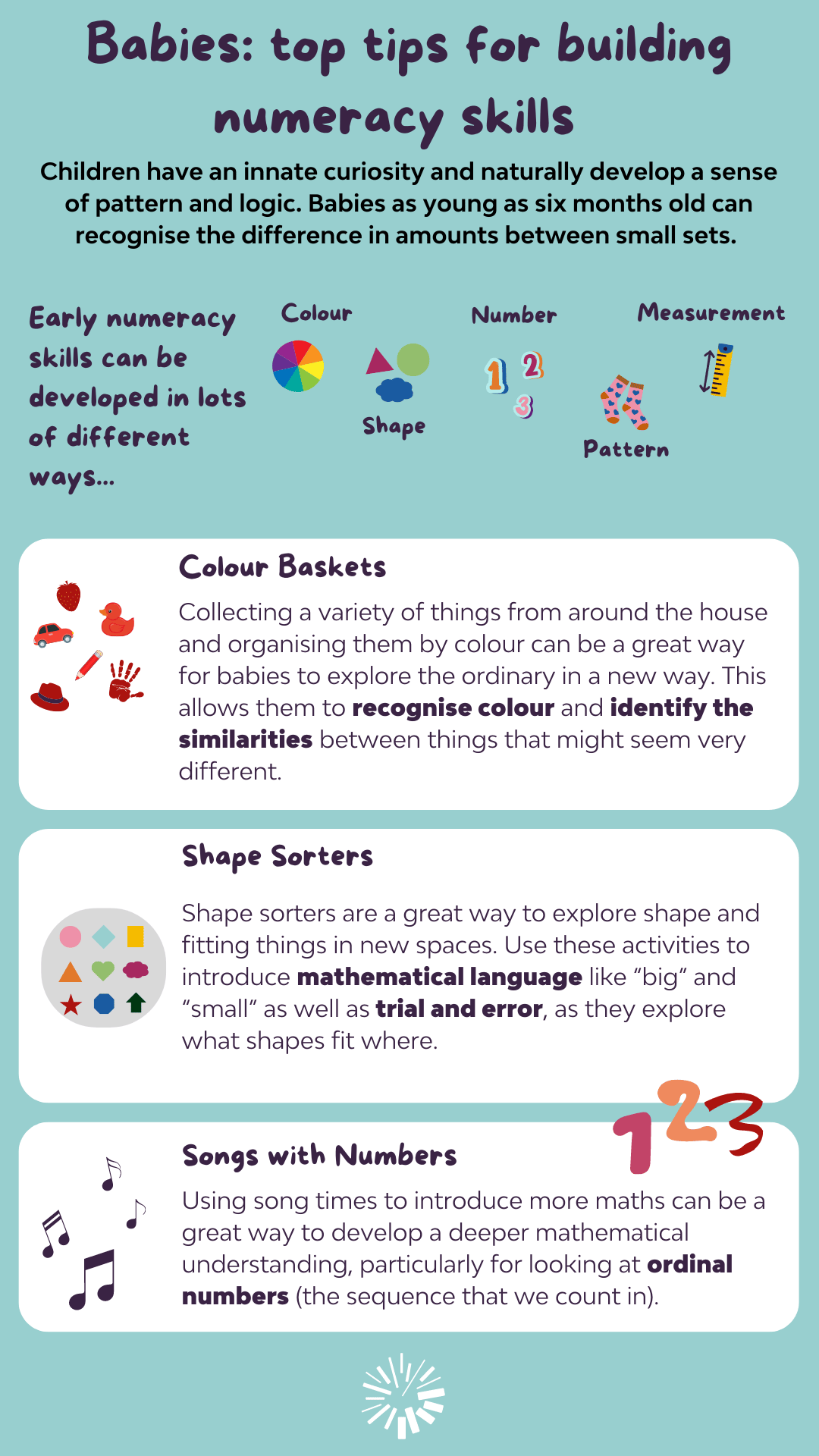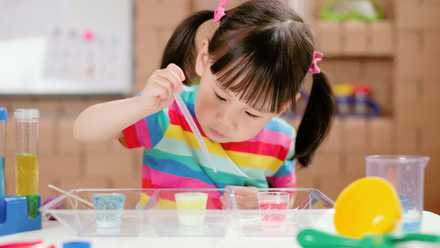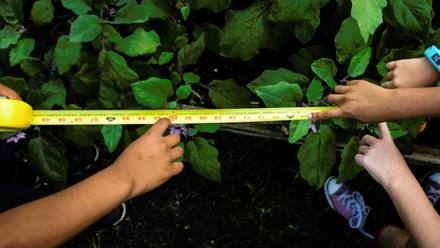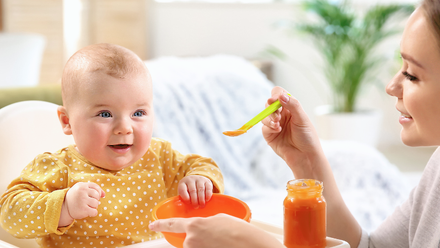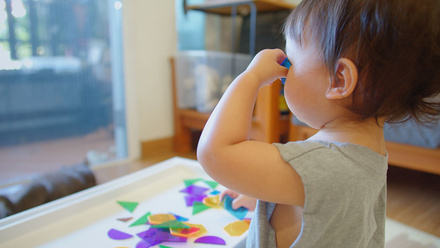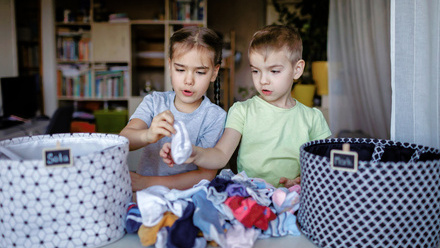Babies: top tips for building numeracy skills
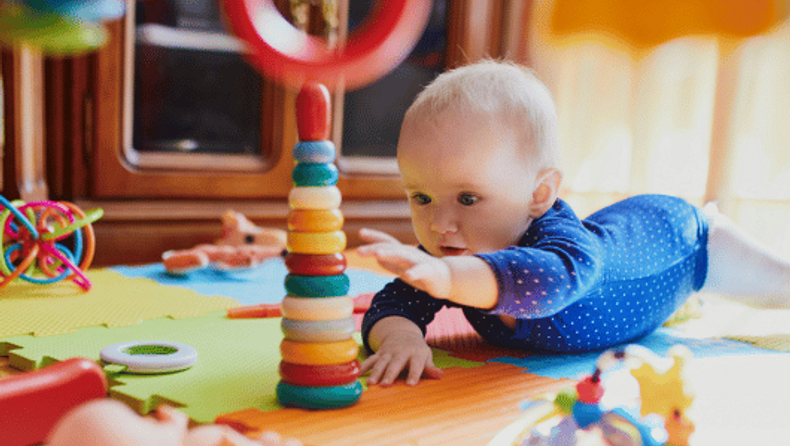
Children have an innate curiosity, and develop a sense of pattern and logic in a natural way. Yet, these are skills often thought about for older toddlers. Believe it or not, you can get involved in maths with children from a much younger age! Babies as young as six months can recognise the difference in amounts between small sets.
It’s important to nurture this mathematical curiosity from the youngest age, so let’s have a look at some ways to build numeracy skills with infants.
Early numeracy skills can be developed in lots of different ways:
- colour
- shape
- number
- pattern
- space
- measurements.
And some of the best learning comes from allowing babies to explore and ‘have a go’ at trying new things in new ways…
Colour Baskets
Collecting a variety of things from around the house and organising them by colour can be a great way for babies to explore the ordinary in a new way. This allows them to recognise colour and identify the similarities between things that might seem very different.
Shape sorters
Another great resource that can easily be created at home. Babies often love to throw and drop things (usually food!) but this is an amazing way for them to explore how things fit and their relation to the space. This mathematical development is a great way to introduce mathematical language like “big” and “small” as well as trial and error, as they explore what shapes fit where.
Songs with numbers
It has been shown that nursery rhymes have a highly effective and unique impact on the formation of learning for babies so using song times can be a great way to develop mathematical understanding, particularly for looking at ordinal numbers (the sequence that we count in). Some of our favourites include:
- 5 little ducks
- 1, 2, 3, 4, 5 fish
- 5 currant buns
- Hickory Dickory Dock
Whilst mathematical knowledge is vital, early numeracy skills do so much more for babies than the development of their understanding of maths content. It introduces them to problem-solving skills, experimenting and trying new things, and it allows them to socialise with others in a fair and considerate way.
We use our maths thinking all the time, often without even knowing it. It’s a vital part of our role working in early education and care to set high standards and encourage a positive attitude for mathematical learning, which starts at such a young age.
For more information on working with babies and thinking about maths, why not visit our members resources and use the filters to help you find your answers?
